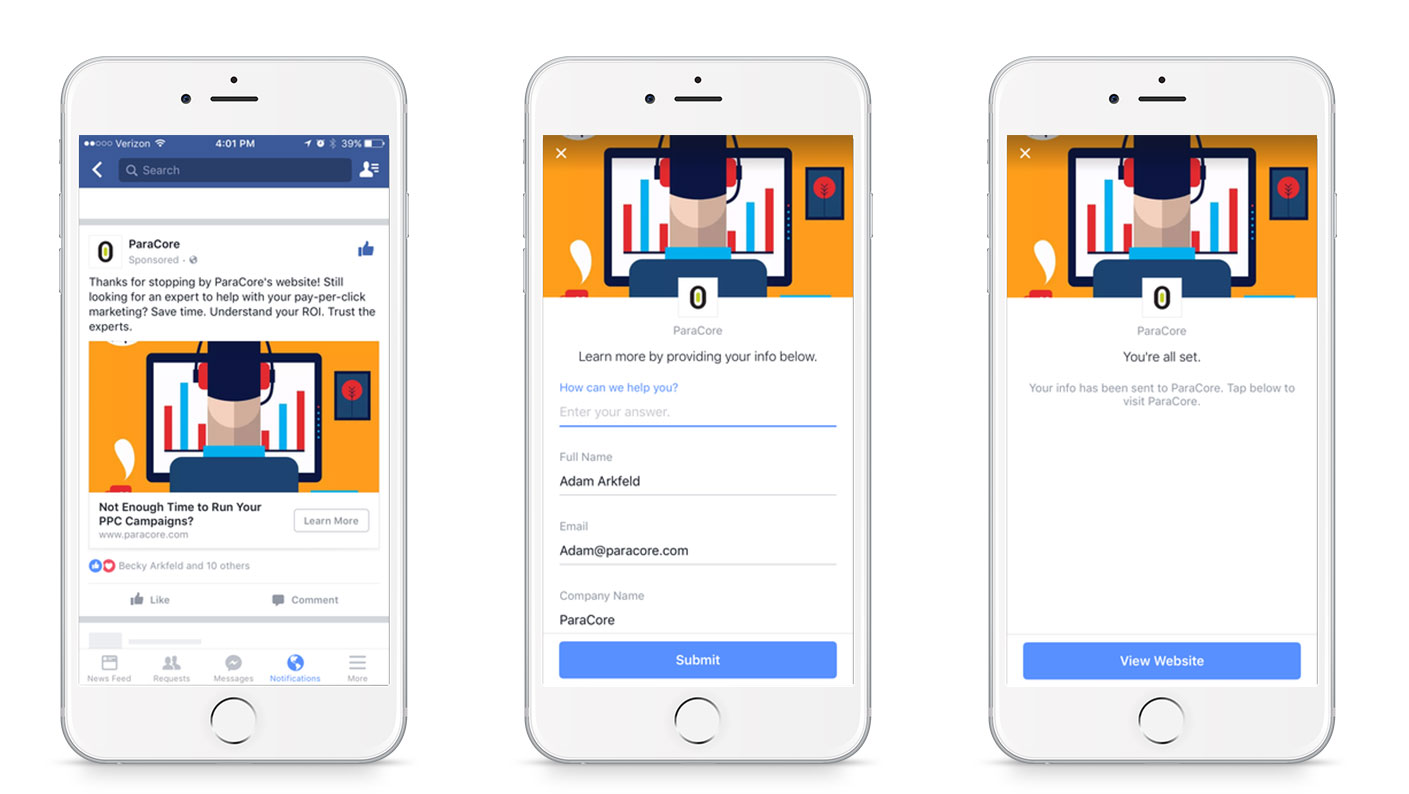

High demand for enrollment is a clear reflection of a school’s success. That’s why the primary function of any higher ed. institution’s marketing department is to target potential leads and convert them into students.
In your quest to attract more leads which you will then try to turn into enrollments, you must develop effective strategies that will help you succeed.
Read on and dive deeper into the world of lead generation for higher education. From utilizing unique ads in various social media platforms to using chatbots, learn what tools have the most significant value in lead generation for higher education.

To help you make the most out of lead generation and compete, we have compiled a list of the most effective strategies you can use.

Using search engine optimization (SEO) and content marketing is the best strategy that can help your institution generate leads.
There are three key areas you need to focus on when trying to increase your leads through SEO:
The first step is to start with a Technical SEO audit. This audit will highlight any technical SEO issues that could be preventing your website from achieving its full potential in search results. We’ve done hundreds of audits for university/college websites, and here’s what we usually find:
Once the issues are identified, you want to work together with the IT department to make a plan on addressing/fixing these issues. Not all issues are equal, so prioritizing them based on the SEO impact they will have is very important.
Next, we want to address the content on our website. This includes the content on our program pages, our info pages, and the blog (if we have one).
Program pages are the most important pages on our website. We want to make sure they have the content a student expects to see when they land on a program page.
Content depth is very important (how much content we have on our program pages), as seen by the example below. WGU has 3,736 words of content on their accounting degree program page, and they’re ranking in the 2nd position for the [accounting degree] keyword. ASU is doing well, too, with over 2,400 words of content, while UND is underperforming, their page has only 735 words.

The last part is Authority. For most institutions, this won’t be an issue since by default, the websites are quite authoritative. The authority of a website in SEO is measured by the number of links from external websites pointing back to our own website. The more links we have from relevant websites, the more authoritative our website becomes.
That doesn’t mean we should invest in link building, to increase the website authority. Our recommendation is to focus our link building efforts on the program pages. This will increase the chances for the program pages to rank for their target keywords.
There’s much more to SEO than what we just described above. But if you just do the above, you’re already ahead of most of your competition.
SEO is the best performing channel after direct traffic, when it comes to lead quality and conversion rate from lead to application to enrollments. Your target audience is engaging with Google, asking questions, and researching information from the very first day they decide they want to go to college. Making sure you’re visible when they search for your programs will have a significant impact on your lead generation efforts.
Manaferra is an SEO agency specializing in Higher Education. We only work with Higher Ed. Institutions offering SEO services. We’ve won the Best Use of SEO for Higher Education award for our work with Pacific College (US Search Awards) and the University of the Potomac (Global Search Awards).
If you have a program that is underperforming and are interested to see if SEO can change that, contact us today. Our SEO Specialists will create a free customized report highlighting the existing performance of that program, the growth potential, and the strategy to get there.
Digital marketing, especially through various social media platforms, has increased significantly in recent years. Your university or college can benefit substantially from using social media ads, as surveys show that one in two Gen Zers and Millennials think such platforms are the most relevant channels for presenting advertisements. Therefore, they are more likely to interact with the ads and help you improve your site’s lead generation.
Lead generation ads are a particular type of digital ad that enable you to collect data about potential customers while simultaneously promoting the school’s study programs, courses, and any events the institute is hosting.
All the major social media platforms offer these ads, including Facebook, LinkedIn, Instagram, YouTube, Twitter, and more. Utilizing these lead ads can improve your site’s conversion rates by allowing students to directly submit their information to you through the ad instead of being redirected to another page. This is just one example of what barriers to conversion you can lower to make your site more user-friendly and decrease exit rates.

Lead ads ensure a hassle-free and time-saving experience for the audience, as well as provide you with basic information that you can use to build up a customer database of potential leads for future correspondence. With a customer database, it will be easier to target a specific portion of your audience and further improve your ads with tailored questions and content that help uncover the preferences of potential students and ensure that you are reaching out to them with the correct information.
In addition, our experts point out that you can effectively use segmentation in Google Analytics 4 for higher education by dividing visitors who have visited your site regarding a specific study program but did not request further information. Then, with the engines’ tools, you can use custom dimensions to understand their behavior compared to the converted leads and notice areas you can improve.
Virtual events are a popular way for institutes to promote their products and services, especially since the COVID-19 pandemic when virtual events became the only feasible alternative to physical gatherings due to government restrictions and lockdowns. Even now, when restrictions have been lifted, there is high demand for virtual events, with the global virtual events market size expected to grow by 21.4% over the next decade.
There are various virtual events to choose from, including virtual open houses, webinars, and live streams, allowing attendees to learn more about your higher education institution, its academic programs, admissions, financial aid, campus life, and more. These events are an excellent tool for lead generation because you can safely assume that the people attending them are interested in the topics discussed and, therefore, in becoming actual students of your institution or partaking in other services.
Utilizing such events is a great way to interact directly with your leads and show them that your college or university would be a good match for them. So, make sure to plan and host the event accordingly, selecting a suitable platform and promoting the event on various social media sites in order to reach your target audience and beyond.
One of the most significant benefits of virtual events is that such events are not constricted to space; therefore, you can generate leads from thousands of miles away without needing any of the two parties to travel. Likewise, you are not restricted to a certain number of people, as would be the case with an in-person gathering. You can have a much larger audience, thus increasing the probability of generating relevant leads that may be converted to actual students without any additional costs.
However, you might encounter challenges as you plan virtual events, specifically keeping your attendees engaged. To overcome such a challenge, you must carefully plan and manage the event to create an immersive experience for each attendee by including various polls, surveys, live Q&As, etc. Such activities will help you gather data about the audience you can use to send invites and keep them updated about upcoming events, thus, generating more precise leads that become enrolled students.
Keeping up with the fast and continuously evolving world of digital communication requires adaptability to new trends. In the context of higher education institutions, this means putting the students first and utilizing all tools that can help them easily navigate through your page and find relevant information about the school.
For example, the global chatbot market is valued at $3.78 billion and is projected to increase by 30.29% until 2027. Therefore, a valuable strategy regarding lead generation for higher education would be implementing advanced chatbots that can help you connect with your audience in online environments. These chatbots help ease your workload—they are programmed to help all website visitors be redirected to the area they are interested in and obtain answers to their questions. Thus, they aid in reducing frustration, providing personalized communication, and improving user experience.
Depending on the exact strategy you want to follow, you can implement various chatbots, such as lead qualification chatbots, booking chatbots, and conversational chatbots. When implementing them for your higher education institution, it is essential to identify the correct use case. Some areas of chatbot use cases that can have a significant impact on lead generation include:
For any chatbot you decide to implement, you must carefully consider the conversation flow and ensure that it best represents your brand and provides all the necessary information about your study programs or courses to build rich engagement with your audience. This way, you can avoid one of the most common challenges that developers face when creating and implementing chatbots—the chatbot’s ability to interpret messages and understand the user’s intention.
Chatbots provide their services 24/7; therefore, your site will be up and running with a unique computer program designed to simulate human conversation, help visitors, and work toward generating leads during and outside of office hours.

Establishing a successful public relations strategy is essential as it helps build your brand’s reputation, thus influencing your lead generation. By creating a positive and trusting image around your higher education institution, combined with all the other strategies listed throughout this blog, you attract leads that have the potential to turn into enrollments.
The primary challenge PR strategists face in the context of higher education institutions is choosing the right message and using their branding to turn qualified leads into students. That is why defining your target audience and presenting a relevant message about your brand when developing your PR strategy is crucial. This way, you ensure that your content is perfectly shaped around your audience and their needs.
Additionally, you must carefully consider the channels and mediums you utilize to reach out and the type of content you post to present the best version of your brand to the public. Such an approach helps you establish a positive brand image as well as generate leads and conversions.
PR strategies should be developed with a long-term goal in mind and managed carefully. You should always be working on nurturing and maintaining a positive reputation in order to allow visitors to take their time in getting to know your branding, understanding your goals and the opportunities you can provide, and finally—trusting your institution.
1. What is lead generation, and how does it apply to higher education?
Lead generation refers to the process of initiating a customer’s interest in your product or service. In higher education, lead generation represents identifying and attracting prospective students to your college or university.
2. Why is lead generation important for higher education institutions?
Lead generation ensures that your higher education institution continues to grow and reach more potential enrollments, which in turn helps with revenue generation.
3. What are some common lead-generation strategies and tactics used in higher education?
4. How can technology and digital marketing be used to support lead generation in higher education?
They can be used to run advertising campaigns that reach the target audience and set up landing pages that help convert website traffic into qualified leads.
5. What are the potential benefits and risks of lead generation for higher education institutions?
The benefits of lead generation include a higher rate of college enrollment, improved visibility, and increased revenue, among other benefits. The risks associated with lead generation are a lack of relevant data and practical strategies, typically caused by one’s lack of understanding of the lead generation process.
6. How can higher education institutions measure the success and ROI of their lead-generation efforts?
To measure the success and return on investment (ROI) of your lead generation efforts, take the monetary growth from your institution, subtract the marketing costs, and divide by the marketing cost. Generally, an annual ROI of over 7% is considered a success.
7. What are some of the best practices for implementing lead-generation campaigns in higher education?
Before implementing lead generation campaigns, ensure you identify your target audience and have a clear long-term goal about what you want to achieve. Gather and analyze data about your audience and, through segmentation and targeting, determine potential students and customize your campaigns to their requirements and needs.
8. How can higher education institutions ensure that their lead generation efforts are compliant with regulations and laws, such as the General Data Protection Regulation (GDPR) or the Telephone Consumer Protection Act (TCPA)?
To ensure that your efforts are compliant with regulations and laws, you must ensure that:
9. How can higher education institutions optimize their lead generation efforts for different stages of the customer journey, such as awareness, consideration, and decision?
They can optimize their lead generation efforts through advertising campaigns encouraging prospective students to engage with their institution. Then, they can use PR campaigns and SEO strategies to boost the consideration stage and push them toward conversion in the decision-making stage with virtual events, content marketing, chatbots, and other tools.
10. How can higher education institutions stay up to date with the latest lead generation trends and best practices in the sector?
Staying up to date is a continuous process; therefore, they should constantly read relevant blog posts and newsletters, attend events in this sector, embrace social media, etc. Alternatively, they can employ capable agencies that are one step ahead in the lead generation game.
There are millions of people out there who are looking for all that your institution has to offer. All that is left to do is ensure that you do your best to provide them with opportunities for interaction with your site.
If you still need help with generating leads, contact us, get a free SEO gap analysis from our experts, and discover the full potential of your site. Seize this opportunity and take your institution to the next level!

SEO Director, Co-Founder
Granit is the Co-Founder & SEO Director at Manaferra.
Granit is the Co-Founder & SEO Director at Manaferra.
Stay up to date with the latest marketing, sales, and service tips and news.